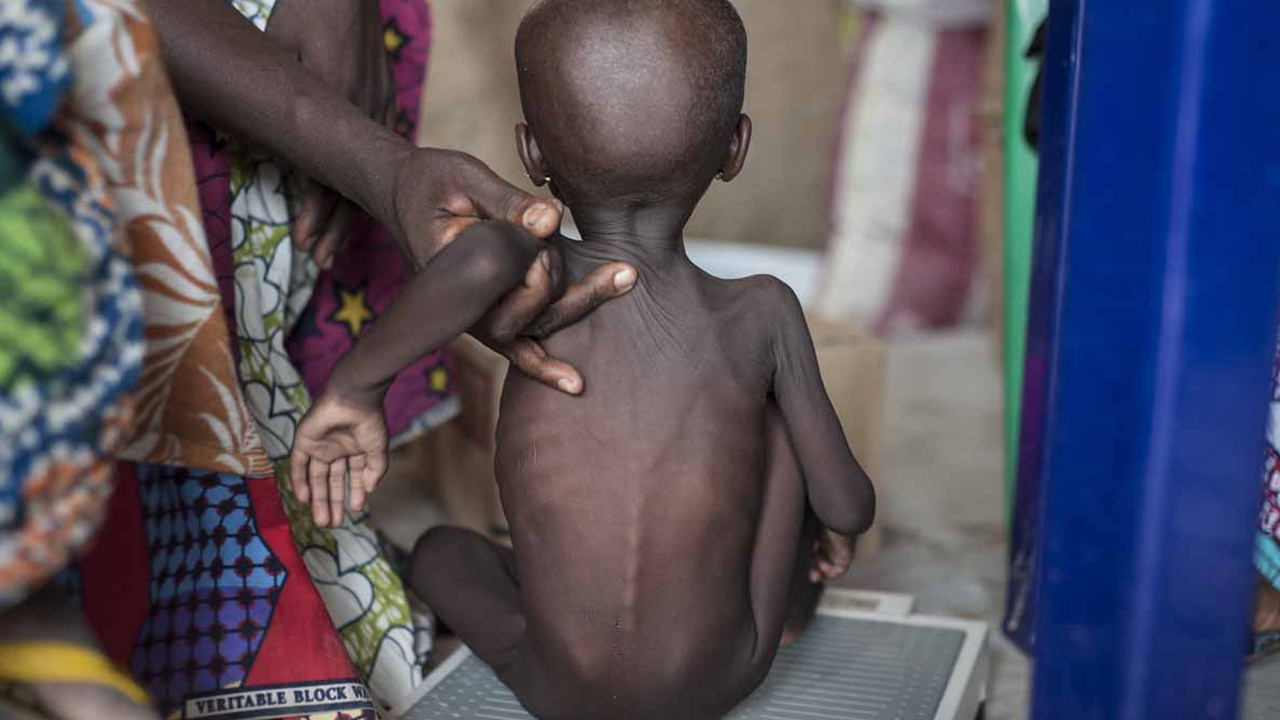The United Nations has raised the alarm over a widespread hunger and malnutrition crisis in north-east Nigeria.
To prevent the crisis from turning fully catastrophic, it said US$396 million is urgently needed to scale up humanitarian action in Borno, Adamawa, and Yobe (BAY) states.
“More than half a million people may face emergency levels of food insecurity, with extremely high rates of acute malnutrition and cases of mortality if there is no rapid and significant scale-up of humanitarian assistance.
“An estimated two million children under five in the three states are likely to face wasting this year. This is the most immediate and life-threatening form of malnutrition.
- Buhari To Confer GCFR Honour On Tinubu Ahead Of Inauguration
- Tinubu’s inauguration: Stay away from Eagle Square, Transition Council warns unauthorised persons
“Some 700,000 children are at risk of severe acute malnutrition – meaning that they are 11 times more likely to die compared to well-nourished children. They need immediate action to survive,” UN OCHA said in a statement on Thursday.
The deepening food crisis and worrying malnutrition levels are the result of years of protracted conflict and insecurity which continue to prevent more than 2 million people from returning home, according to the statement, adding that a combination of fuel and food inflation, a naira cash crisis earlier in the year, and climate shocks are among factors that have worsened the crisis.
“I have seen firsthand the anguish of mothers fighting for the lives of their malnourished infants in our partner-run stabilization centres. This is a situation no one should have to face,” said Mr. Matthias Schmale, the Humanitarian Coordinator for Nigeria. “I have spoken with children who described going for days without eating enough. Mothers who said their children go to bed crying from hunger. Families struggling to feed their families as they have gone for months without receiving food assistance.”
The UN said if additional funding is not received, humanitarian partners will only reach about 300,000 of the 4.3 million at-risk people in need of food assistance during the peak of the lean season.
The World Food Programme (WFP) is scaling up its operations to assist 2.1 million people with emergency food and nutrition supplies.
The United Nations Children’s Fund (UNICEF) and nutrition partners aim to provide life-saving nutrition services to over one million malnourished children, as well as pregnant and breastfeeding women.
The Food and Agriculture Organization (FAO) plans to reach two million people with seed packages to secure cereal production for the upcoming harvest.
“While we continue to work together to stave off catastrophe, the sheer scale of the food and nutrition crisis means that humanitarian assistance is critical right now,” said Mr. David Stevenson, the Country Representative and Country Director of WFP in Nigeria.

 Join Daily Trust WhatsApp Community For Quick Access To News and Happenings Around You.
Join Daily Trust WhatsApp Community For Quick Access To News and Happenings Around You.


